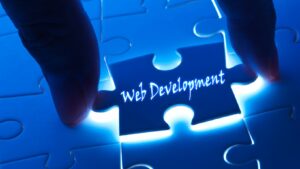Key Takeaways
- AI Transformation: Artificial intelligence is fundamentally changing software development by automating coding, testing, and project management tasks, leading to increased productivity and reduced human error.
- Automation Benefits: AI tools automate repetitive tasks such as code formatting and deployment, allowing developers to focus on complex problem-solving, thereby accelerating project timelines and reducing operational costs.
- Enhanced Code Quality: AI technologies improve code quality through intelligent insights and real-time feedback, identifying bugs and vulnerabilities earlier in the development cycle, which enhances software reliability.
- Demand for Skills: The integration of AI in software development is driving a significant demand for developers skilled in AI tools and methodologies, emphasizing the need for continuous learning and adaptability.
- Ethical Considerations: Developers must navigate ethical challenges, including data privacy and algorithmic bias, ensuring that AI systems are monitored for fairness and compliance with regulations.
- Future Trends: The evolution of AI and software development includes the rise of low-code/no-code platforms, augmented engineering, and collaboration between AI and human developers, shaping a competitive landscape for tech professionals.
Artificial intelligence is revolutionizing the landscape of software development, transforming how developers approach coding, testing, and project management. With its ability to analyze vast amounts of data and identify patterns, AI streamlines processes, enhances productivity, and reduces the likelihood of human error.
As businesses increasingly adopt AI-driven tools, the demand for skilled software developers who can leverage these technologies is skyrocketing. This intersection of AI and software development not only fosters innovation but also poses new challenges that require adaptability and continuous learning. Understanding how AI can be integrated into software development is crucial for staying competitive in today’s fast-paced tech environment.
AI And Software Development
 AI significantly enhances software development by automating various tasks and offering intelligent insights. It transforms traditional coding practices through code generation and optimization tools. These tools analyze existing codebases, suggest improvements, and even create entire functions based on user input. This automation leads to faster development cycles and reduces the risk of human error.
AI significantly enhances software development by automating various tasks and offering intelligent insights. It transforms traditional coding practices through code generation and optimization tools. These tools analyze existing codebases, suggest improvements, and even create entire functions based on user input. This automation leads to faster development cycles and reduces the risk of human error.
Testing processes benefit from AI’s capabilities as well. AI-driven testing frameworks use machine learning algorithms to identify potential bugs and vulnerabilities. These frameworks improve test coverage and reduce time spent on manual testing. By rapidly detecting flaws, developers can address issues earlier in the development life cycle, leading to more reliable software.
Project management experiences a shift due to AI integration. AI tools analyze project data to identify patterns and predict potential delays. This analysis allows teams to make informed decisions, allocate resources more effectively, and streamline workflows. As a result, overall project efficiency improves while maintaining quality standards.
With these advancements, the demand for knowledgeable software developers rises. Professionals skilled in AI tools and methodologies are essential in the current market. They must embrace continuous learning to keep pace with innovations and leverage AI to its full potential. Understanding the intersection of AI and software development becomes critical in maintaining a competitive edge in the tech industry.
The Impact Of AI On Software Development Process
AI revolutionizes the software development process by enhancing efficiency and effectiveness through various innovative methods. Key areas include the automation of repetitive tasks and improved code quality via advanced AI tools.
Automation Of Repetitive Tasks
Automation streamlines routine activities, allowing developers to focus on complex problems. AI-driven tools handle tasks such as code formatting, testing, and deployment. These tools reduce time spent on mundane activities, increasing productivity and creativity in the development team. For instance, AI can automatically generate boilerplate code, freeing developers from repetitive coding patterns. As a result, teams can accelerate project timelines and decrease operational costs.
Enhanced Code Quality Through AI Tools
 AI tools significantly enhance code quality by providing intelligent insights and real-time feedback. Techniques such as static code analysis detect potential bugs and security vulnerabilities before they become critical issues. AI algorithms learn from historical data, improving their predictive accuracy over time. Additionally, code review tools can suggest optimizations, helping developers adhere to best practices. With these enhancements, software projects achieve higher reliability and maintainability, which translates to improved user satisfaction and lower long-term maintenance costs
AI tools significantly enhance code quality by providing intelligent insights and real-time feedback. Techniques such as static code analysis detect potential bugs and security vulnerabilities before they become critical issues. AI algorithms learn from historical data, improving their predictive accuracy over time. Additionally, code review tools can suggest optimizations, helping developers adhere to best practices. With these enhancements, software projects achieve higher reliability and maintainability, which translates to improved user satisfaction and lower long-term maintenance costs
Numerous AI tools enhance software development, focusing on code quality and software testing. The following sections detail some of the most popular tools available for developers.
Code Review Assistants
Code review assistants streamline the code review process, making it faster and more efficient. Tools like Codacy, DeepCode, and GitHub Copilot automatically analyze code for best practices and potential errors.
- Codacy provides real-time feedback by assessing code quality and consistency.
- DeepCode leverages machine learning to offer intelligent suggestions based on existing code patterns.
- GitHub Copilot uses OpenAI’s models to help generate code snippets, improving workflow and productivity.
These tools reduce manual review burdens, increase code quality, and foster collaborative development environments.
Automated Testing Frameworks
Automated testing frameworks enhance software reliability by executing tests continuously throughout the development lifecycle. Popular frameworks include Test.ai, Selenium, and Appium.
- Test.ai employs AI to create and execute tests, adapting to changes in the user interface without manual input.
- Selenium automates web application testing through scripted interactions, supporting various programming languages.
- Appium offers a flexible solution for mobile application testing, allowing users to write tests across multiple platforms.
These frameworks not only minimize testing time and effort but also increase test coverage and accuracy, leading to higher-quality software releases.
Challenges And Considerations
AI integration in software development presents several challenges and considerations that must be addressed for effective implementation.
Ethical Implications
Ethical considerations arise from the use of AI in software development. Developers face significant issues regarding data privacy, security, and algorithmic bias. AI systems require extensive datasets, often containing personal information, leading to concerns about data handling and compliance with regulations like GDPR. Algorithmic bias can manifest in automated decision-making processes, potentially resulting in unfair treatment or discrimination against certain user groups. Continuous monitoring and auditing of AI systems become essential to ensure fairness, transparency, and accountability in AI-driven development.
Integration With Existing Workflows
Integrating AI tools into existing workflows poses challenges for developers and organizations. Compatibility issues may arise when combining AI tools with legacy systems or established software development practices. Training and onboarding teams to work with new AI technologies require time and resources, potentially disrupting ongoing projects. Developers must adapt their workflows to accommodate AI-generated code and insights, ensuring that human oversight remains a fundamental component of the process. Additionally, aligning AI capabilities with the unique needs of specific projects necessitates a tailored approach to integrate effectively within diverse development environments.
Future Trends In AI And Software Development
AI and software development will evolve through several key trends that shape the industry landscape. These trends include the rise of low-code and no-code platforms, augmented software engineering, and enhanced collaboration between AI systems and human developers.
Low-code and no-code development platforms gain traction by enabling non-developers to build applications without extensive coding knowledge. These tools leverage AI to provide pre-built components and templates, allowing faster development cycles. Professionals can focus on unique features and business logic while standard applications are efficiently constructed.
Augmented software engineering utilizes AI to assist developers in making better decisions. AI tools analyze data from previous projects and current development patterns, providing actionable insights that improve design and implementation. Developers receive recommendations that enhance productivity and reduce the time spent on repetitive tasks, fostering creativity and innovation.
Collaboration between AI systems and human developers increases in importance as more generative AI tools emerge. These tools work alongside developers, suggesting code snippets and solutions based on project requirements. Developers leverage these AI-generated suggestions while ensuring human oversight, which maintains quality and safeguards against potential biases inherent in automated processes.
Training and education will adapt to reflect these trends, with more resources focusing on AI integration within software development. Professionals will seek to understand machine learning concepts, enabling better collaboration with AI tools. This knowledge enhances productivity and helps address ethical considerations surrounding data usage and algorithm transparency.
Ethical AI development will become a priority, emphasizing fairness and transparency. Developers will prioritize responsible AI use, implementing practices that promote accountability. This approach ensures AI systems operate within ethical boundaries, which builds trust among users and stakeholders.
The increasing demand for AI-driven applications leads to a surge in AI-oriented software creation. As organizations seek to leverage AI technologies, software developers must adapt to the changing landscape by acquiring new skills and embracing AI integration throughout the software lifecycle. Awareness of emerging trends and technologies will guide developers in harnessing the full potential of AI while remaining competitive in the industry.
Popular AI Tools For Software Developers
The integration of AI in software development is reshaping the industry landscape. By automating repetitive tasks and enhancing code quality, AI tools empower developers to focus on complex challenges. This not only boosts productivity but also fosters creativity within teams.
As the demand for skilled developers who can navigate this AI-driven environment grows, continuous learning and adaptability become essential. The future promises exciting advancements with low-code platforms and augmented engineering, paving the way for even greater collaboration between humans and AI.
Embracing these changes will ensure that developers remain at the forefront of innovation while addressing ethical considerations and maintaining high standards in software quality.

